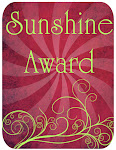When I first decided that I was going to write a JAFF book, I had to choose between a modern adaptation and a Regency era "what if." I had a list going of pros and cons for both, and one of the cons for a Regency era book was the vernacular. I thought it would be difficult trying to use words that I have only read, and most likely never uttered out loud. Also the order of the words--they are unintuitive. And the predicates are all over the board with Jane. I just didn't think I could get in the groove. I was wrong. No. How wrong I was.
We all know that there are little freaky pockets of our brains that stow away bits of information that we never intended to keep. But I was not expecting that I had a little stash of words and phrasings that I would use on a whim some day. All those years of period dramas, Masterpiece Theater, Bronte books, and of course my beloved Austen books and screen adaptations paid off. When I chose Regency, I dove right in, and out of my subconscious came flowing a river of words that I would never have strung together in every day life. It surprised me how easy it was. Thanks little freaky brain.
The problem for me now is that those words that I spend hours on, meant for characters living and breathing in 1800, are starting to come out in my every day conversations. "Make haste!" and "Are you quite well?" are escaping without any thought. I'll be lucky if I don't start running around in empire waisted frocks instead of my everyday blue jeans, and buying ugly bonnets to make over.
Some words are new to me, and some are old friends. One word that I have fallen in love with during this journey is "great." The power of that word is lost in our language today. We use it to mean awesome, wonderful or sometimes large, but it's lost its weight. Its heaviness. Its poundage. "A great slap" is sooo much better than a "hard slap." There is more force, but also more class attached to it. A "great shout" is ten times better than a "loud shout"--or is it just me? I have been having to quell (another ancient word I never used before) my liberal use of "great" and rein myself in, but I have enjoyed my new appreciation for that great word.
Okay, back to my work in progress. I've written about 130 pages so far. The checklist helped a great deal. I will leave you with a little paragraph that makes me laugh each time I read it. Poor Caroline is the one lady everyone loves to hate, and I'm no exception. I hope you enjoy it too. Thanks for keeping up with me.
*
Surprisingly, and most likely against Caroline’s wishes and knowledge, Mr. Bingley came calling at Longbourn two days later. Elizabeth wondered if he had to lower himself from an upper story while his sister was distracted cooking plump children. She also noted that it was fortuitous that her young visiting cousins were mostly lean and thus safe. Mrs. Bennet could barely contain her raptures, and Mr. Bingley was immediately invited to dinner the following night, which he graciously accepted, though they were merely having fish.
Subscribe to:
Post Comments (Atom)






Good luck, Amy. I think you will have a great time writing this. And thank you for your lovely email about my story as well. Best wishes- Amy Robertson
ReplyDeleteIt was so excellent hearing from you, Amy! Once again, I will attribute our same first and last names to pure serendipity and romance. "Tis the season. Jane would love it. Come again!
ReplyDeleteVery funny! Does Caroline get cooked herself at the end of your book? :)
ReplyDeleteMaria
Maria--LOL! I haven't thought about what will happen to Caroline, but cooking her is not out of the realm of possibilities!
ReplyDelete